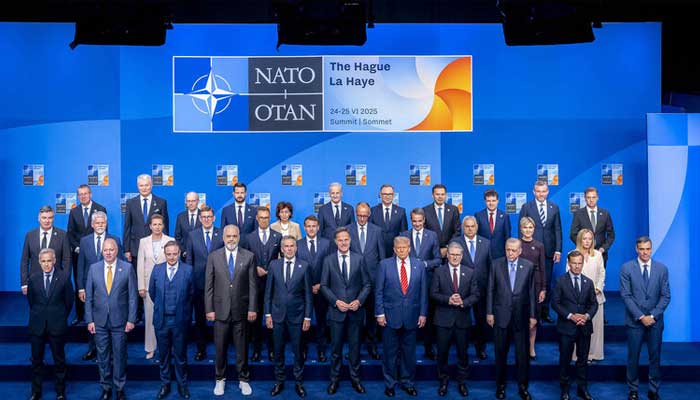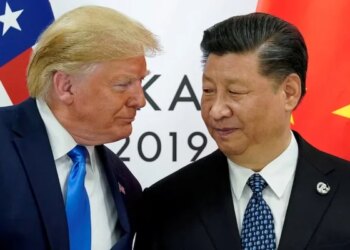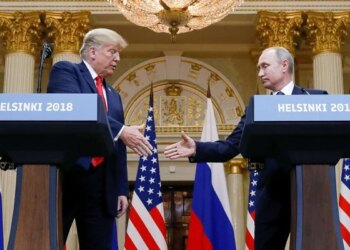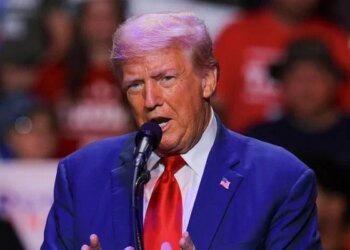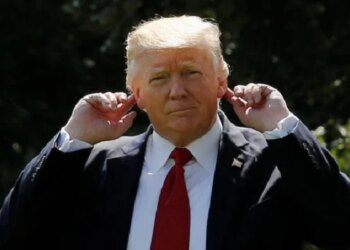Select Language:
- NATO member countries to boost defense spending to 5% of GDP.
- Trump criticizes Spain’s position on spending goals.
- Macron connects spending increases to transatlantic trade issues.
NATO leaders gathered on Wednesday endorsed a significant increase in defense spending, as advocated by U.S. President Donald Trump, and reaffirmed their solidarity in mutual defense following a short summit in the Netherlands.
While Trump achieved his aim at this annual meeting designed with him in mind, his NATO allies were likely relieved at his reaffirmation of the essential principle of collective defense after his earlier ambiguous remarks on Tuesday.
During a press briefing, Trump mentioned, “We had a tremendous victory today,” expressing his hope that the increased funding would be allocated to military equipment manufactured in the United States.
Trump’s Warning to Spain
However, he warned of potential repercussions for Spain after Prime Minister Pedro Sanchez indicated that the nation could fulfill its NATO responsibilities while spending significantly less than the newly set 5% of GDP target.
“I find that unacceptable. Spain is doing very well economically. But if something negative occurs, their economy could take a hit,” Trump stated, adding that Spain may receive a harsher trade deal from the U.S. than other European Union nations.
The NATO leaders issued a five-point communiqué that supported the augmented defense spending goal, addressing not only Trump’s demands but also Europe’s increasing concerns about a potential threat from Russia following its invasion of Ukraine in 2022.
The statement from the 32 allies read: “We reinforce our unwavering commitment to collective defense as defined in Article 5 of the Washington Treaty — an attack on one is an attack on all.”
When pressed about his stance on Article 5 amid recent unclear statements, Trump affirmed, “I support it. That’s why I am here. If I didn’t, I wouldn’t be here.”
Macron Raises Trade Tensions at NATO Summit
Trump has persistently urged other nations to elevate their spending to lessen NATO’s heavy dependence on U.S. support.
Despite the appearance of consensus, French President Emmanuel Macron brought attention to the steep tariffs threatened by Trump, which may hinder transatlantic trade and subsequently impact increased defense expenditure.
“We can’t commit to increasing our spending while simultaneously igniting a trade war at the heart of NATO,” Macron remarked, labeling it as “absurd.” He indicated that he had discussed this issue with Trump multiple times.
NATO Secretary General Mark Rutte, who hosted the summit in his hometown The Hague, described NATO as emerging as a “stronger, fairer, and more formidable” alliance.
The former Dutch prime minister praised Trump for facilitating agreement among NATO members to raise defense budgets.
When queried by a reporter about whether he had overly flattered Trump to keep him on board during the summit, Rutte replied that he and Trump were friends, and that judgment about his approach was subjective.
New NATO Spending Objectives Are Challenging
The newly established spending target, aimed to be achieved over the next decade, represents a significant increase worth hundreds of billions of dollars annually compared to the existing 2% GDP goal, although the measurement protocol will change.
Nations committed to allocating 3.5% of their GDP towards core defense, which includes military personnel and equipment, while 1.5% is earmarked for broader defense-related initiatives such as cybersecurity and fortifying infrastructure to accommodate heavy military vehicles.
This additional funding will be a significant challenge for many European countries, which are already grappling with tight budgets.
Ukrainian President Volodymyr Zelenskiy was only able to join a pre-summit dinner on Tuesday night and miss the main discussions on Wednesday, although he did manage to meet Trump separately after the event.
The Kremlin has accused NATO of escalating militarization and depicting Russia as a “dangerous adversary” to justify its substantial increases in defense budgets.

